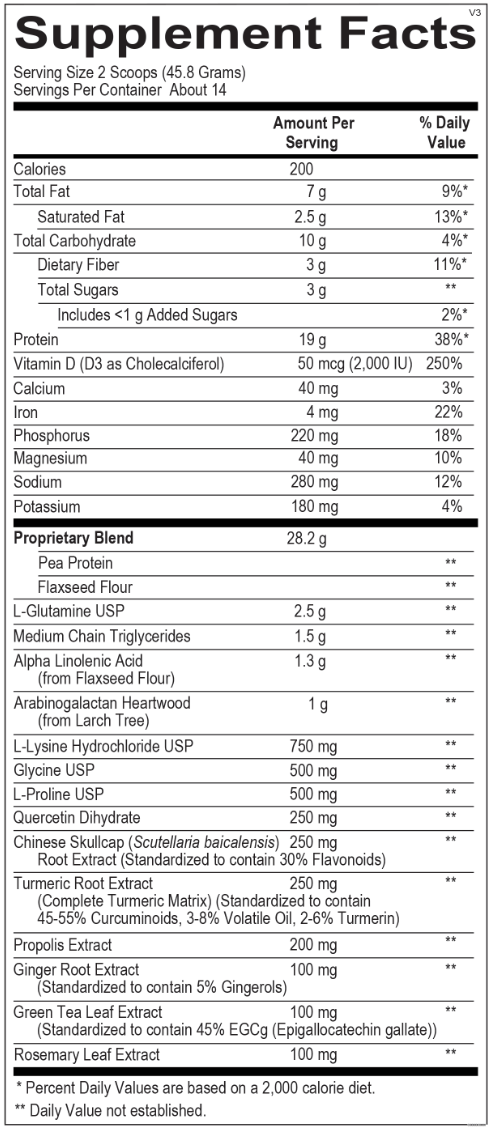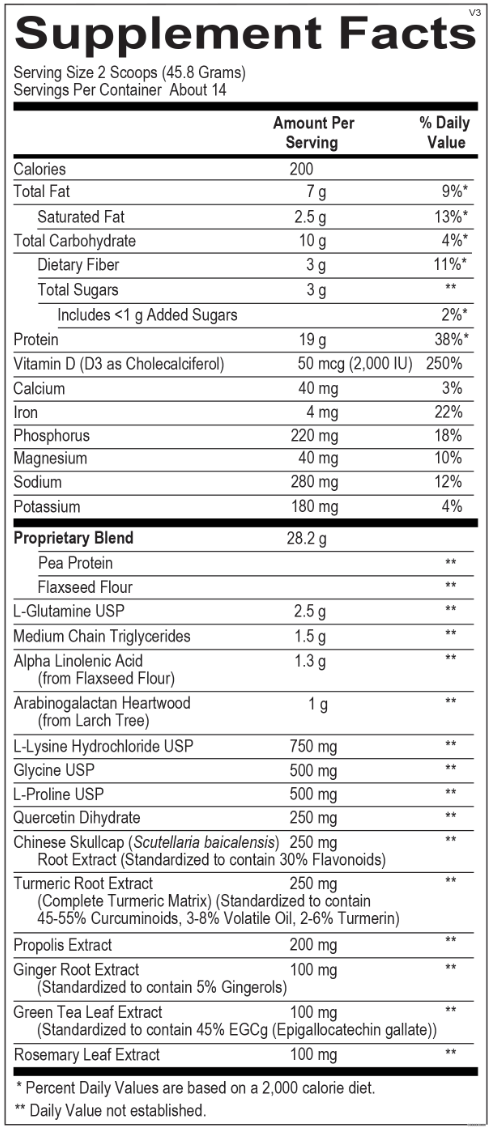
All You Need to Know About Chronic Fatigue Syndrome
Dr Anita NischalTable of Contents
| Chronic Fatigue Syndrome is a condition majorly characterized by chronic exhaustion. It is not mere tiredness, but deep, bone-crushing fatigue that no amount of bed rest or sleep can cure. |
The chronic exhaustion condition is also known as myalgic encephalomyelitis chronic fatigue syndrome or CFS. Generally, the fatigue disorder triggers women twice to four times as compared to men, typically between the ages of 25 to 45 years. Also, it can affect adolescents and children as well.
As per the Center for Disease Control (CDC) in the U.S, roughly 836,000 to 2.5 million Americans suffer from chronic exhaustion, and even most of them are not diagnosed at the right time. Besides, research displays that the U.S. loses between US$9 to 25 billion each year in decreased productivity and medical expenses caused by CFS.
What is Chronic Fatigue Syndrome?
Chronic fatigue syndrome (CFS) is a complex ailment that is characterized by radical fatigue disorder that lasts for a minimum of six months. And, chronic exhaustion cannot be comprehensively explained by an underlying medical illness. The fatigue deteriorates with physical or mental activity but does not get better with rest.
Chronic fatigue syndrome CFS is not just the feeling of tiredness but is a novel state of fatigue that can be so severe that it does not support our normal daily activities.
Almost every morning, you tend to feel as if you did not get adequate sleep, and often you wake up at night quite a lot of times for no specific reason. Besides, you can have difficulty concentrating and multitasking at home or office. Furthermore, when you stand upright from a sitting or lying position, you feel lightheaded, and your heart beats swiftly. The standing position makes you feel terrible, and you need to lie down flat immediately.
Chronic Fatigue Syndrome Symptoms
Chronic fatigue syndrome symptoms depend on the individual and the gravity of the condition. The most widespread symptom of chronic exhaustion is fatigue that’s harsh enough to disturb your daily activities.
In order to diagnose fatigue disorder- check your reduced ability to do your usual daily activities which are not to be curable with bed rest or sleep. Also, you will tend to experience extreme fatigue after physical or mental activities, which is commonly called post-exertional malaise (PEM). This PEM can last for more than 24 hours after the activity you performed.
The myalgic encephalomyelitis chronic fatigue syndrome (CFS) can also lead to sleep problems and other health concerns like:
- The feeling of tiredness after a night’s sleep
- chronic insomnia
- loss of memory
- other sleep disorders
- Poor concentration
- orthostatic intolerance (going from lying or seated to standing positions makes you feel light-headed, dizzy, or even faint)
- experiencing dizziness that worsens with changing positions from lying down or sitting to standing.
Chronic fatigue syndrome symptoms may entail:
- muscle pain
- frequent headaches
- multi-joint pain without redness or swelling
- frequent sore throat
- swollen lymph nodes in neck and armpits
Apart from this, the American Myalgic Encephalomyelitis and Chronic Fatigue Syndrome Society (AMMES) recommends other feasible symptoms:
- muscle twitching
- rashes
- canker sores
- saying words incorrectly or difficulty moving the tongue to form words
- depression
- high-stress levels
- tinnitus
- lack of sex drive or sexual impotence
- hair loss and difficulty walking
- extreme symptoms of premenstrual syndrome (PMS)
- unexplained weight changes
- chest pain & seizures
- paralysis
- spatial disorientation
Chronic exhaustion influences people in cycles, with periods of feeling worse and then improved. Symptoms of CFS may sometimes even disappear thoroughly, which is termed as remission. However, it is still likely for symptoms to return after a while, which is then termed as a relapse. This constant cycle of remission and relapse can make it troublesome to manage the symptoms, but luckily it is still possible.
Let’s check the causes of chronic fatigue syndrome and treatment for the same below:
Causes of Chronic Fatigue Syndrome
The major causes of myalgic encephalomyelitis chronic fatigue syndrome are still not researched properly. While some people may be born with fatigue disorder, and in others, chronic exhaustion is triggered by an amalgamation of various factors. These possible triggers are as follow:
- Viral infections: Some people may develop chronic fatigue disorder after suffering from a viral infection. Suspicious viruses such as Epstein-Barr virus, human herpesvirus, but no conclusive relationship has yet been found.
- Weak Immune system: The immune systems of people who have chronic fatigue syndrome are weak slightly. However, it is unclear if this fragile immune system is enough to lead to this chronic exhaustion disorder.
- Hormonal imbalances: People with chronic fatigue syndrome often experience abnormal blood levels of hormones produced in the hypothalamus, pituitary glands, or adrenal glands. But again, the implication of these hormone imbalances is not confirmed yet.
- Physical or emotional injury: Many people also reported that they experienced chronic fatigue syndrome symptoms after an injury, surgery, or significant emotional stress.
How to Diagnose CFS?
Based on the symptoms, the doctor should ask about your medical history and should physically examine it. Your doctor may ask about symptoms of other fatigue disorder reasons counting:
- Hypothyroidism
- Adrenal insufficiency (underactive adrenal gland)
- Heart disorders
- Sleep apnea or narcolepsy
- Cancer
- Hepatitis B or hepatitis C
- Certain psychiatric illnesses
- The eating disorders anorexia nervosa and bulimia
- Drug abuse
- Severe obesity
Few blood tests and urine tests may be done to rule out other conditions like anemia, an underactive thyroid gland or liver, and kidney problems.
Chronic Fatigue Syndrome Treatment
There is no cure for chronic fatigue syndrome. Treatment focuses on symptom relief. The most annoying or disabling symptoms should be addressed first. Doctors may suggest these combinations of chronic fatigue syndrome treatment:
- Changing lifestyle habits: Patients suffering from chronic exhaustion are often firstly suggested to slow down or minimize physical exertion and try to avoid psychological stress. They must save their energy for vital activities at home or work and reduce the less-important activities.
- Resuming exercise slowly: With the help of a physical therapist, you can commence an exercise program including aerobic physical activity very slowly, and it is boosted gradually. After this, you may expect the feeling to occasionally worsen. If that happens, you are advised to avoid exercise for some days and then resume a less-intensive program, and then increase the pace slowly.
- Treating psychiatric problems: Around 50% to 60% of people with chronic fatigue syndrome may suffer from depression. Then, antidepressant treatment and counseling therapy can be valuable in treating the depression and anxiety of the same. However, chronic exhaustion is hardly cured by antidepressant therapy.
- Treating the pain: Aspirin, acetaminophen (Tylenol) or nonsteroidal anti-inflammatory drugs are used to treat headaches, muscle pain, and joint pain. Some herbal and natural supplements also may help to reduce chronic pain.
- Experimental therapies: Some studies show that high doses of omega-3 fatty acids (such as fish oil capsules) may help treat chronic exhaustion. Numerous antiviral therapies are being tested.
- Medication: Some problems associated with chronic fatigue syndrome can benefit from either prescription or over-the-counter medications. Examples include treating depression can make it easier to cope with the problem of chronic fatigue syndrome. Low doses of few antidepressants help improve sleep and relieve pain.
Immediately call or visit your doctor if the symptoms of chronic fatigue syndrome are extreme and do not allow you to fully participate in activities at home, work or school.
Explore more
- What is Bariatric Weight Loss Surgery? Who should get it done? Pros, Cons & More
- Know About Hormone Replacement Therapy (HRT): Uses, Side-effects & More
- Proven Ways to Lower Thyroid Antibodies & Prevent Hashimoto’s Disease
ME CFS is a disabling and complex illness. People with ME CFS are often not able to do their day-to-day activities. Sometimes ME CFS confine them to bed. Problems with sleep, thinking, concentrating, pain and dizziness are some of the other symptoms. ME CFS affects people’s ability to do daily tasks, like taking a shower or preparing a meal.
Chronic fatigue syndrome symptoms affect various body parts including unrefreshing sleep, weakness, muscle & joint pain, poor concentration or memory loss, and headaches. Symptoms may be mild to severe. Sometimes symptoms may come and go, or chronic exhaustion may stay for weeks or months or years.
Doctors like General Physicians refer patients to see a specialist like a neurologist, rheumatologist or sleep specialist. These specialists might find other conditions that need treatment.
Vitamin deficiency is usually the cause of being tired all the time. The best vitamins for CFS are vitamin D, vitamin B-12, iron, magnesium, or potassium for treating chronic exhaustion. A routine blood test can help identify the vitamins needed for chronic fatigue syndrome treatment. The doctor will recommend the supplements.
Symptoms like fatigue, swollen lymph nodes, and fever are experienced when a teenager or adult is infected. In very rare cases EBV (Epstein-Barr virus) can cause a chronic infection, which can be fatal if not treated. EBV has also been linked to other conditions including cancers and autoimmune disorders.












